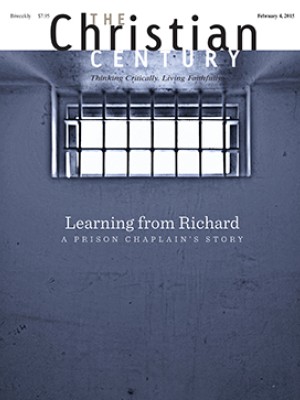Influential writer on theological education dies at 85
William Edward Farley, 85, a theologian and influential writer on theological education, died December 27 at his home in Brentwood, Tennessee. He had congestive heart failure.
Farley taught philosophy and theology at DePauw University and Pittsburgh Theological Seminary before joining the faculty of the Vanderbilt Divinity School in 1969, working there for three decades. He is widely viewed as the architect of a major curriculum redesign during the 1980s, Vanderbilt wrote in a statement.
“With quiet wisdom, Ed had a compelling theological mind that was creative and expansive,” said Emilie M. Townes, dean of Vanderbilt Divinity. “Few theologians had such a command of theological reflection.”
L. Gregory Jones of Duke University Divinity School wrote in the Christian Century that Farley’s 1983 book Theologia: The Fragmentation and Unity of Theological Education launched “more than three decades of intellectual conversation and scholarly proposals about theological education.”
Read our latest issue or browse back issues.
Farley remains the only theologian to have been awarded Vanderbilt’s Earl Sutherland Prize for Achievement in Research, which he received in 1991. He received the 1997 American Academy of Religion Award for Excellence in Constructive-Reflective Studies for his book Divine Empathy.
He earned a bachelor of divinity degree at Louisville (Kentucky) Presbyterian Theological Seminary and a doctorate from Columbia University and Union Theological Seminary in New York City. He was an ordained Presbyterian minister.
He published 12 books, including a memoir, Thinking about Things and Other Frivolities.
In a 1998 interview with the Century shortly after his retirement, Farley said that “theological education cannot be reduced to the learning of clerical skills or to scholarly knowledge.” Instead, “theology concerns the wisdom by which one brings the resources of a religious tradition to bear on the world.”
Yet he did not see that as only a professional task. “I think theological education should be a phenomenon in congregations as well as seminaries,” he said. “If something like that could come about, a new continuity would be fostered between seminaries and congregations.”
In an essay in the Century, he wrote that the typical Protestant worship lacks “a sense of the terrible mystery of God, which sets language atremble and silences facile chattiness.” What is needed is adoration, he wrote, “awe before Mystery and deep reverence for the Good.”





